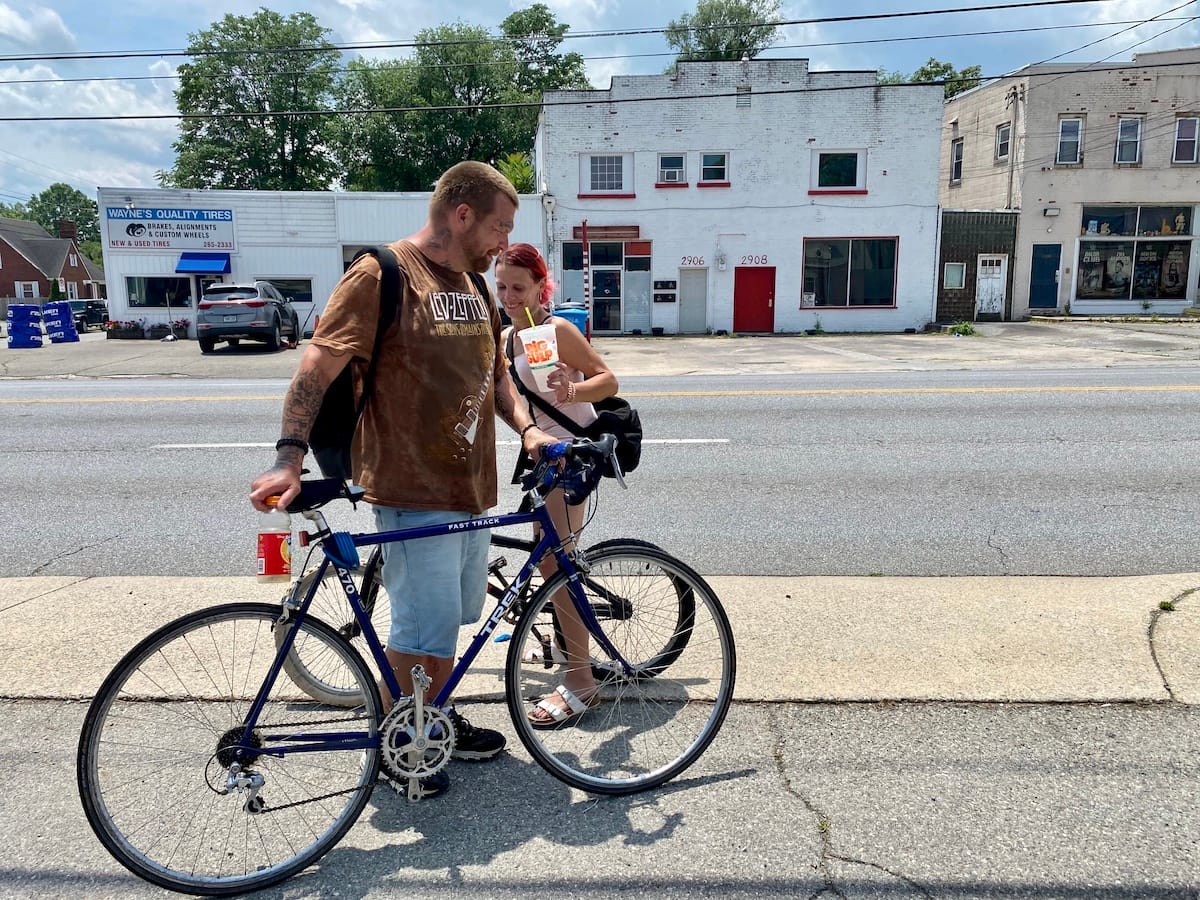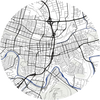Ramblings: Williamson Road's Future Sought; New Director Takes on Addiction Response; Jeffrey To Pay Restitution
What are Ramblings? Ramblings are a collection of short items that have caught our attention for one reason or another.
What are Ramblings? Ramblings are a collection of short items that have caught our attention for one reason or another. We’re on the lookout for tidbits related to money in politics, data, business, civic engagement or interesting events. Think you know of something that could be a Rambling? Drop us a line at editor@roanokerambler.com and we may well write about it. Happy reading!

Residents voice visions for Williamson Road
Two lanes or not two lanes?
That’s been the question for Williamson Road for nearly a decade. City officials have wrestled with the high-speed, four-lane corridor that has a disproportionate number of crashes, particularly for pedestrians.
Now, rather than float specific roadway options, the city wants residents to envision how they want to navigate a future roadway that’s often used as a commuter route and is home to many small- and immigrant-owned businesses.
“This is not about two lanes or four. It’s not about sidewalks or not,” Dwayne D’Ardenne, the city’s transportation manager, told a gathering of about 40 residents Tuesday. “It’s, ‘What do we want to see on Williamson’? This is a once-in-a-generation investment in Williamson Road.”
City officials hope it’s a third-time’s-the-charm moment.
Two years ago, the city unsuccessfully applied for $21 million in state funds to reconfigure the roadway by reducing traffic lanes from four to two, adding a center turn lane and adding bike lanes. In 2016, a similar idea failed after community pushback.
“Along the way, there's these ‘No Road Diet’ signs,” D’Ardenne said. “What does that say to me? That says the community didn't feel heard.”
A city survey, set to expire Wednesday, has been extended through the end of August to garner more community feedback.
But several residents who turned out at Tuesday’s meeting expressed wariness at the prospect the city would maintain the current four-lane thoroughfare. The city, and many residents, agree that something must be done to reduce the risk of crashes involving cars, bicyclists and pedestrians.
City officials have noted that wide roads with multiple lanes encourage high-speed traffic, which makes crashes more severe.
“I’m not seeing six plans. I’m seeing one plan, and that’s shrinking the road,” Ben Burch, president of the Airlee Court Neighborhood Watch Association, said.
“I thought this was a blank slate, but is this a resurrection of 2022, which it sounds like this gentleman thinks it is?” one attendee asked D’Ardenne, motioning to Clay McClintock, who sits on a Williamson Road steering committee that will come up with a consensus for the roadway.
“There is nothing on the table,” D’Ardenne said. “We want to know what the vision for the community is so we can determine what the road looks like to support the vision. The road project is not an end in itself; it is a means to an end.”
Several residents advocated keeping the roadway to four lanes but adding a separate path for walkers and bicyclists that could connect to a greenway.
Another attendee said traffic flows more smoothly with a center turn lane.
“We talk about what we think will happen, but you can look at what has happened,” she said. “So when I saw the whole controversy about a road diet, I started reading and cities that have done this, it is safer.”
The Williamson Road steering committee, which is made up of two dozen neighborhood leaders, business representatives and transit advocates, is expected to review feedback in the coming months.
A final recommendation isn’t expected until the early part of next year. D’Ardenne said even if the city were to receive funding for a major roadway project right after that, construction likely wouldn’t begin until the early 2030s.
New director takes on addiction crisis
Bailey Medeiros has become the new director of the Roanoke Valley Collective Response, which is tasked with fighting the region’s drug and addiction crisis.
Medeiros, formerly Helgeson, takes over from Robert Natt, who announced in late April that he would be resigning the following month. Medeiros, the collective’s recovery community engagement lead, had served as interim director.
The collective includes dozens of representatives, from local governments to law enforcement, healthcare and education.
“The work is done by people showing up and trusting one another and saying, like, ‘Okay, let's keep working on this,” Medeiros, 37, said. “I would say my biggest priority is nurturing the relationships that exist and extending these relationships to other localities, other services, other individuals, so that everyone knows that we're there for them.”
Medeiros grew up in Southern California and moved in 2019 to Virginia. She was addicted to heroin and found treatment in Roanoke. In 2022, she joined the collective as a peer recovery coordinator.
“Even after all these years, there's stigma in just like the word ‘heroin’ or in the word ‘addict,’” Medeiros said. “And I have found it empowering to say it and use it, because I think that's how we get through and get to the other side by just talking about these things really honestly.”
Local governments like Roanoke have allocated some pandemic relief money and opioid settlement money toward staffing the Collective Response.
It’s also leaned on the group to inform how else to spend money that has come down from settlements with opioid manufacturers and sellers.
Some of that money has gone toward certified peer recovery specialists, training after-school staff and families on dealing with childhood traumas; and equipment to identify the powerful opioid fentanyl and the non-opioid xylazine, a tranquilizer used on animals that has shown up in regional drug supplies.
“Bailey has already shown a deep and enthusiastic commitment to the work of addiction recovery and in the region, and we are truly thrilled to have her step into this leadership role,” Jeremy Holmes, executive director of the Roanoke Valley-Alleghany Regional Commission, said in a press release. The Collective Response is a program under the commission.
Jeffrey agrees to pay restitution
Former Roanoke councilman Robert Jeffrey Jr., who was convicted in 2022 of stealing funds from a neighborhood organization, agreed Tuesday to begin paying restitution.
Jeffrey’s sole income source is $900 in disability each month, his attorney, Melvin Hill, said at a hearing in Roanoke City Circuit Court. Hill said Jeffrey will pay $300 each month to the court.
“I’ve advised Mr. Jeffrey to pay more if he can,” Hill said.
Prosecutors say Jeffrey owes about $200,000 to the Northwest Neighborhood Environmental Organization (NNEO), where he worked as a property manager, and $15,000 to the city, which he was convicted of defrauding out of pandemic relief funds.
Assistant Commonwealth’s Attorney Sheri Mason said the court will direct payments to the NNEO until it’s made whole, followed by the city.
“We’re glad to get the restitution amount settled after seven months,” Betty Jo Anthony, a prosecutor in the office, said after the hearing.
A few days after being released from prison in December, Jeffrey filed for bankruptcy, claiming he was unable to pay back money he was convicted of stealing. A bankruptcy judge dismissed his case last month.
In those records, the former councilman and publisher of now-defunct ColorsVA Magazine listed money owed to financial institutions and medical businesses. Jeffrey listed $4,088 in monthly income, about $2,400 of which came from a “family contribution.”
Jeffrey said he goes to dialysis three times a week and is searching for a kidney donor. He has a medical appointment next month at the University of Virginia Medical Center for testing, Hill said, noting the seriousness of a kidney transplant.
“That may affect his ability to pay,” Hill said.
Jeffrey told reporters after the hearing that he is focusing on his health.
He said he has appealed his embezzlement conviction to the state supreme court. In a separate civil lawsuit that has been on hold, Jeffrey maintained the belief that City Council improperly removed from elected office after his conviction.
“I’m disappointed I wasn’t able to do my job,” Jeffrey said, but added he was not interested in coming back to serve that term. “I have aspirations to help the community. I don’t know that that means running for office.”

